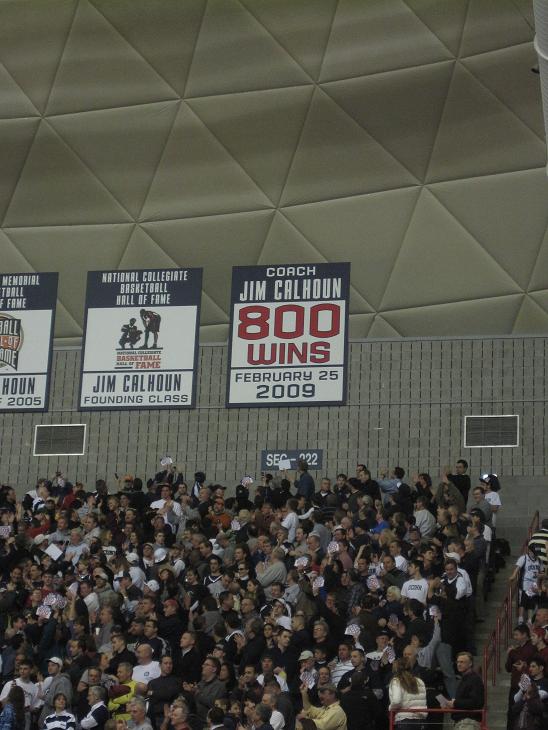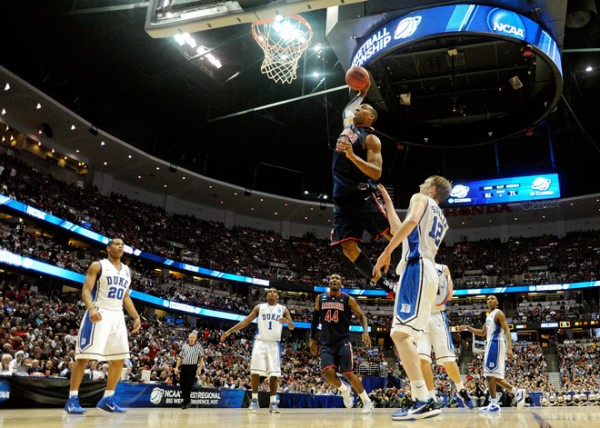Posted by nvr1983 on April 7th, 2011
We realize that Jim Calhoun hasn’t decided to retire yet and there is still a pretty good chance that he will come back for at least one more season given his frequently stated desire to always look for a fight. Still we think that it is reasonable to suggest that even if he doesn’t retire during this off-season he will be retiring in the near future given his age (he will turn 69 in May) and well-documented medical history. So we ask the question that has been on the minds of many journalists during the past few days: where does he rank historically?

Calhoun already has quite a legacy
By almost any measure (ignoring the opinions of some rival fans) Calhoun would be considered a top 10 coach all-time putting him into a category that includes such luminaries as John Wooden, Mike Krzyzewski, Dean Smith, Adolph Rupp, Bob Knight, Phog Allen, and others. That much is obvious, but once you get into that group the measures used to differentiate those coaches gets more subtle. Certainly a coach would need to have longevity and a consistent record of putting winning teams on the floor, which could be measured by the career wins. A good bar to set there would probably be 600 wins. If you want to argue for a higher standard be careful because the legendary John Wooden “only” had 664 career wins, a number that many current number-crunching analysts would deem paltry compared to others in this group. Winning championships is certainly important, but as this season clearly demonstrated it doesn’t necessarily reflect having the best team, which Northern Arizona coach Mike Adrus indicated with his vote in the final coaches’ poll. Still at some point that is what the sport boils down to. When we look back at this season we will remember UConn’s tournament run more than Pittsburgh‘s excellent regular season. Setting the bar at 2 NCAA titles narrows the group down to 13, but includes individuals like Billy Donovan, who picked up his championships in back-to-back years, and would have a hard time making a list of top 10 active coaches much less top 10 all-time. It also leaves much to be desired when you consider that highly successful coaches like Jim Boeheim and John Thompson only have one championship each despite having a much bigger historical impact on college basketball than Donovan (at least to this point). The next factor would probably be a coach’s impact on the program and the game, which is a more nebulous concept and consequently impossible to quantify. Still all other things being equal you would probably have to give the nod to someone who turned a program from an also-ran into a national power over someone who took over at a traditional power and continued to win even if that coach did bring the program up a notch or two. Others have undertaken the endeavor of trying to rank coaches in order with The Sporting News being the most notable among them, but that isn’t our objective (at least not for today). Instead we will focus on Calhoun, his legacy, and his place in the history of the game.
Read the rest of this entry »
| rtc analysis
| Tagged: adolph rupp, al mcguire, bill foster, billy donovan, coach k, connecticut, dean smith, duke, eddie cameron, jim boeheim, jim calhoun, john thompson, john wooden, kentucky, larry brown, mike adrus, mike krzyzewski, nate miles, north carolina, northeastern, northern arizona, phog allen, pittsburgh, rick pitino, roy williams, sam gilbert, st johns, tom izzo, ucla, uconn, unc, vic bubas
Share this story














































